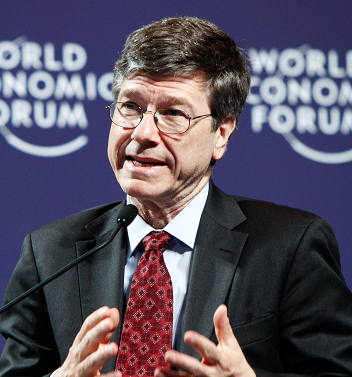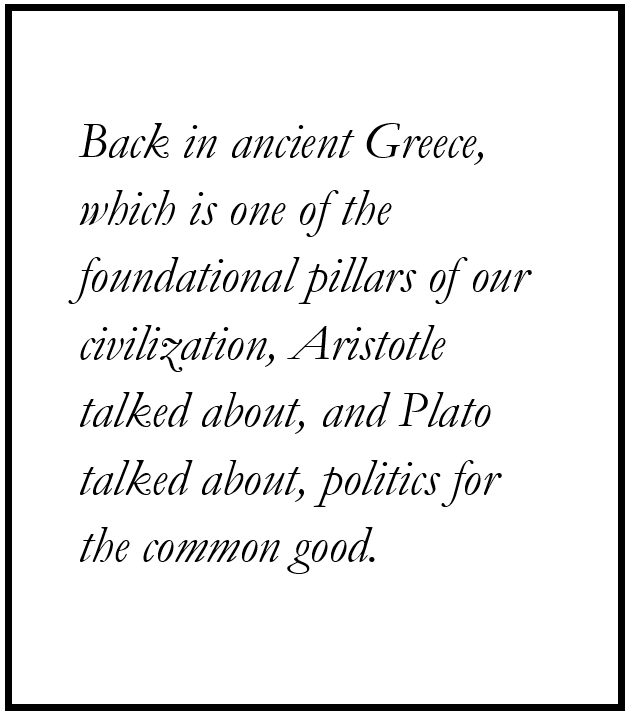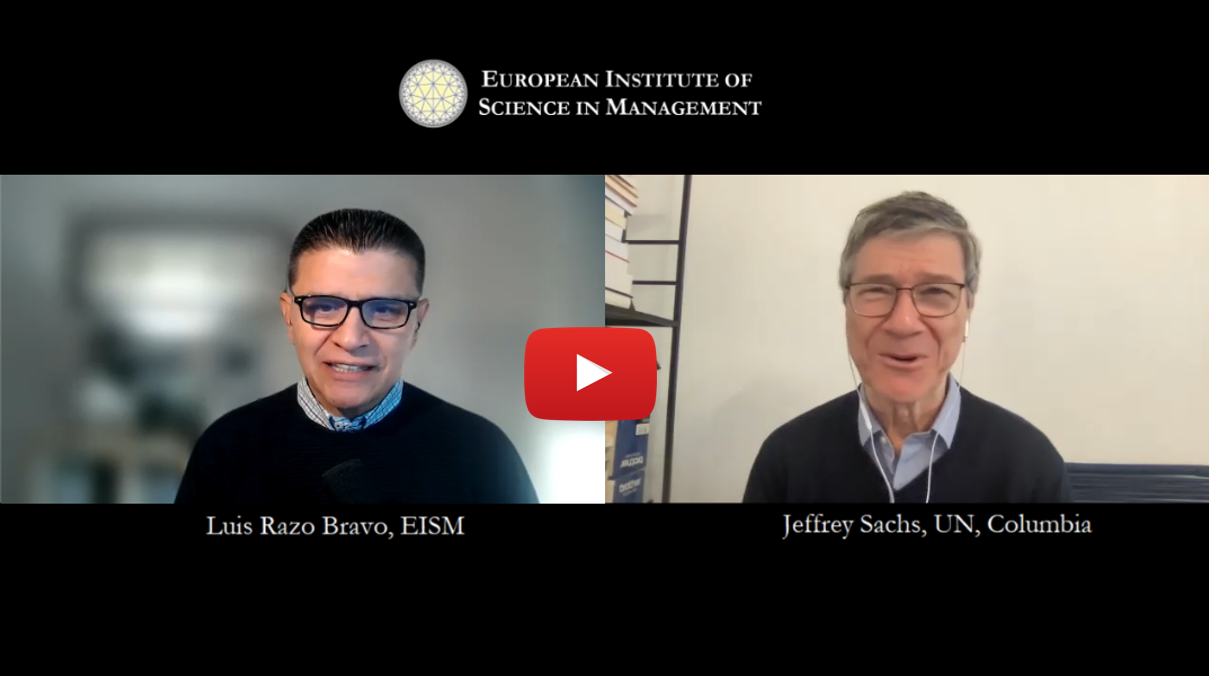
Jeffrey D. Sachs is University Professor and Director of the Center for Sustainable Development at Columbia University, where he directed the Earth Institute from 2002 until 2016. He is President of the UN Sustainable Development Solutions Network, Chair of the Lancet COVID19 Commission, Co-Chair of the Council of Engineers for the Energy Transition, Commissioner of the UN Broadband Commission for Development, academician of the Pontifical Academy of Social Sciences at the Vatican, and Tan Sri Jeffrey Cheah Honorary Distinguished Professor at Sunway University. He has been Special Advisor to three United Nations Secretaries-General, and currently serves as an SDG Advocate under Secretary General António Guterres. He spent over twenty years as a professor at Harvard University, where he received his B.A., M.A., and Ph.D. degrees. Sachs has received 41 honorary doctorates, and his recent awards include the 2022 Tang Prize in Sustainable Development, the Legion of Honor by decree of the President of the Republic of France, and the Order of the Cross from the President of Estonia. His most recent book is The Ages of Globalization: Geography, Technology, and Institutions (2020).
* The following text has been slightly edited and excerpted from the full interview, which may be viewed here or by clicking on the video thumbnail image below.

What are your thoughts about the situation in Ukraine?
I think the main point to understand is that the war in Ukraine is a proxy war between the United States and Russia. To a very large extent, it’s a competition that has now turned deadly between two superpowers over who will control this place, that is, in between Russia and the European Union. And it didn’t have to turn so ugly. In my opinion, it was provoked in no small part by the American insistence that not only the European Union should expand but that NATO should expand. This is something that I’ve opposed for a very long time. Why is the U.S pushing a military alliance up to the border of Russia when Russia has said for years, “Don’t do that. This is our national security. We don’t want your military alliance on our border.” And yet the United States persisted. George W Bush, Jr. insisted that NATO commit to enlarge to Ukraine and even to the nation of Georgia, which is on the other side of the Black Sea, way to the East. And Russia said, “You’re surrounding us. This is our national security. You’re encircling us in the Black Sea, where our naval fleet is. Don’t do this.”
Then the United States contributed to the overthrow of a pro-Russian president in Ukraine that was another step on the way to this war. And so we’ve been escalating on both sides, let’s be clear, for three decades. Actually, the United States has been provoking. Russia has been reacting, and now we are really in a hot war of mass destruction in Ukraine, which is a tragedy for Ukraine. It’s a country caught in the middle, actually, and these kinds of battles of will between superpowers can escalate. And we hear talk every day , well, “Will there be nuclear attacks, Will nuclear weapons be used?” It’s unbelievable to have that kind of daily chit chat about something that is existential for the planet.
Are there any parallels to the Cuban missile crisis?
I spent a lot of my life thinking about and studying the Cuban Missile Crisis and I wrote a book called, To Move the World: JFK’s Quest for Peace, about the aftermath of the Cuban Missile Crisis. The lesson of the Cuban Missile Crisis is that we came within a hair’s breath of nuclear destruction, and even the leaders weren’t really in control of events completely. It ended only by diplomacy. It didn’t end by the United States winning and the Soviet Union losing. It ended by the U.S withdrawing its nuclear weapons from Turkey, while the Soviet Union withdrew its nuclear weapons from Cuba. So, there are lots of lessons that we need to take on board years later in our current conflict.
I can understand the U.S feeling all gung-ho about war, cheering, “We’re going to defeat Putin” – that’s the American way. But it’s naïve and typically a massive failure, whether in Vietnam or Iraq or Syria or Libya or many other places. But why is Europe signing on to this the same way? That, to me, has been a bit of a mystery. Where are people in Europe, especially leaders in Europe, saying, “Look we need to negotiate the end of this war. The war needs to stop. NATO does not need to enlarge. We need other ways for Ukraine to have its security, but we don’t need a proxy war between two superpowers. That’s what I’d like to hear from European leaders.

In your opinion, what are the economics that are driving the situation?
I don’t think economics really are the major driver. I think U.S ideology is the major driver. The U.S ideology is one of empire. It’s been that way since really the founding of the United States, and even before when our constitution was adopted, or when we had the so-called war of independence from the first settlements. The idea was that the white settlers on the Eastern Seaboard of North America would expand Westward. There happened to be lots of nations Westward. They were indigenous American nations that did not perturb the white settlers, and it didn’t perturb the United States of America, which systematically routed and, in some cases committed genocide against Native American populations. When that so-called “Manifest Destiny of Continental Conquest” was over, almost to the moment that that was completed, the U.S looked for adventures overseas. It launched the war against Spain in a deliberate war in order to take new colonial possessions, which included Puerto Rico, Cuba temporarily, and the Philippines for several decades that began America’s overseas adventures.
It’s a complicated story I don’t want to oversimplify it but since World War II the American state elite has had the view that America is the superpower that should run the world.
Have you given much thought to concept of leadership and the branch of economics known as Social Choice Theory?
Social Choice Theory is a framework that’s takes some philosophical premises that I don’t especially care for, and I’ll put it this way. In the Western cultural tradition, there have been different strands of ideas about politics, and different strands of ideas about economics. Without going into a long digression, back in ancient Greece, which is one of the foundational pillars of our civilization, Aristotle talked about, and Plato talked about, politics for the common good and talked about the idea that we need a citizenry of virtue so that people would respond for the common good. The whole question of Plato’s “Republic” and Aristotle’s “Politics” is the question: How do you make a political system for the common good in which there is virtue in the public? Well, years later, a very different political philosophy was written down, and that’s Machiavelli’s philosophy. And the question is: How do you fight for power? In “The Prince”, this is quite different from what the Republic of Plato or the Politics of Aristotle was about. It wasn’t about the common good, it was about power and the question of how to allocate power.
When you come up to our modern economic thinking, it derives heavily from 17th and 18th century British thought and that’s because Britain ended up becoming the hegemonic power of the 19th and first half of the 20th century. So what happened in Britain affected all Western thinking, including how we teach economics, and the idea in this British philosophical thought is, “we have our preferences, each person is different. People are fighting for advantage. Maybe market forces or political forces will be the way that one fights for their personal advantage. Very different from the Greek approach, which is to cultivate virtue so that there is a sense of the common good. Rather it’s how to operate on individual preferences, which somehow come from someplace not cultivated, not developed out of virtue, but that’s you and you through the marketplace, or through political competition, fight for advantage. Social Choice Theory takes that framework and says, okay, people have many different tastes. We are a pluralistic society. How can we put the pieces together? And Kenneth Arrow who was my professor of microeconomics, said “impossible!” and so he said you can’t do it. Different people have different tastes. There is no single system to aggregate. My idea goes back to Aristotle, which is we would be a lot better off if we were cultivating a sense of responsibility and if we had ethics as key.

What are some interesting things taking place now in Europe in terms of sustainable development?
Europe has the most creative framework for sustainable development in the world. In the European Green Deal, the European commission came up with a program and actually the European Council, of course adopted, it and backed it with funding, 1) for an energy transition to a decarbonized energy system, 2) for sustainable land use in the so-called “Farm to Fork” program, 3) for circular economy, 4) for responsible global value chains, 5) for digital access and, 6) for innovation. I really admire the European green deal. I want Europe to get back to the business of sustainable development in the European green deal and away from this awful war in Ukraine, which has become the dominant issue of politics, of course. The war needs to end so that Europe can get back to the European Green Deal and my proposition to the European leaders is you’ve made something really important for sustainable development.
Take it on the road, in the sense that Latin America needs a green deal. Asia needs a green deal. The African Union needs this. This should be Europe’s diplomacy in the decade ahead, not NATO expansion, not war, not confrontation with China. All of that is American misdirection, I’m sorry to say.
Europe should lead on sustainable development because it’s the region of the world farthest along in both the values of sustainable development and the practicalities of how to accomplish it.
What can the average person in Europe do to further these objectives?
Two things: First, call on your political leaders to push for negotiations. Don’t believe in this idea, we’re going to defeat Putin, a country by the way with deployed nuclear weapons. Call for a negotiated end to this war that protects Ukraine’s interests but also stops the NATO enlargement and ends the war. This is one point. Second, work on sustainable development. On the sustainable development goals in your cities, in your businesses, in your universities, in your communities, and support the European Green Deal, which really is a remarkable achievement for disparate countries to have come together for such a clear-sighted approach to sustainable development.



